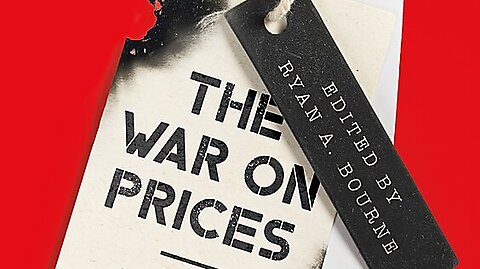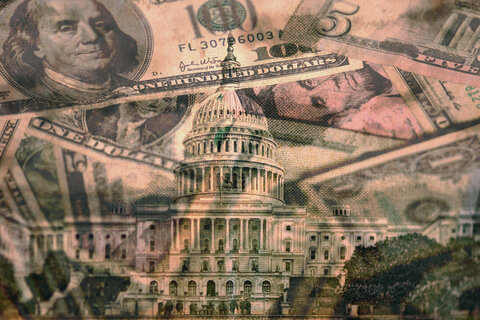
Today the Cato Institute publishes a new book that I’ve edited, The War on Prices: How Popular Misconceptions about Inflation, Prices, and Value Create Bad Policy.
The multi‐author volume* debunks a host of popular misconceptions about the recent inflation, documents the harmful consequences of current and historical government price controls, and pushes back on the misguided moral and economic arguments driving these pricing interventions.
Among other contemporary controversies, the chapters document that:
The recent US price level surge was primarily caused by excessive macroeconomic stimulus from Washington DC, not corporate greed, “supply shocks,” wage‐price spirals, or other specific prices “driving” the overall price level.
Politicians and central bankers have nevertheless deflected blame for this inflation onto corporations and external forces, legitimizing and encouraging a “war on prices” through damaging proposals against supposed “price gouging,” “junk fees,” and “shrinkflation.”
Federal, state, and local governments already institute damaging price controls in a range of individual markets, including on rents, interest rates on short‐term loans, minimum wages, prices amid emergencies, healthcare premiums, credit card late fees, and much else.
From ancient Egypt to the modern US, the most common incarnation of price control, price caps, have created shortages, lower‐quality products, and black markets, and can be especially harmful to the poor.
Far from being a free market, US healthcare is riddled with effective government price controls that typically drive up market prices.
Supposed “junk fees” often have an important economic rationale, and restricting or banning them can produce a range of unintended consequences.
Even when increasing minimum wage rates does not cause job layoffs, firms can adjust by cutting non‐wage benefits, introducing less flexible work schedules, and lowering the quality of the work environment, all to the detriment of workers. A higher government wage floor also typically does very little to reduce poverty.
Both the “pink tax” (women paying more for seemingly similar products) and the “gender pay gap” (women being paid less than men, on average) overwhelmingly reflect choices families make, not business “sexism.”
Uber‐style dynamic pricing, far from being something customers should fear, can be highly beneficial to them in a range of sectors.
There’s much more of interest in the book, including analysis of price controls in World War II, Modern Monetary Theory, water pricing, CEO pay, oil and gas price controls in the 1970s, the morality of market prices, the relationship between prices and value, and the deadly consequence of banning trades for money in kidney markets.
The War on Prices has received some excellent reviews from a diverse range of economists and commentators. See the advanced praise or read a longer introduction. You can order your copy here!
*Contributors include Brian Albrecht, Pedro Aldighieri, Nicholas Anthony, David Beckworth, Eamonn Butler, Vanessa Brown Calder, Michael Cannon, Jeffrey Clemens, Bryan Cutsinger, Alex Edmans, Peter Jaworski, Pierre Lemieux, Deirdre McCloskey, Jeffrey Miron, Liya Palagashvili, Joseph Sabia, J. R. Shackleton, Peter Van Doren, and Stan Veuger.










